This weekend is Father’s Day, and when I wrote this post I was thinking about all of you who have lost a parent or anyone you care about. Lately, my mind has been on the confluence of grief and mediumship, and the impact of losing a loved one when you believe in life after death. In my experience, believing in an afterlife or reincarnation doesn’t necessarily minimise the emotional impact of grief, at least not at first. At the very least, grief is not entirely eliminated by virtue of spiritual beliefs. Over time, dreams, mediumship, and other spiritual tools can provide relief and renewed connection, but not necessarily in the early stages of grieving.
I remember attending a funeral when I was eighteen where I happened to be (embarrassingly) the most prolific weeper. As we walked outside the funeral home, I continued to be inconsolable, and a fellow student asked: “If you believe there’s something after this, why are you so upset?” Add to that the fact that I wasn’t particularly close to our professor who passed away and my behaviour might seem incongruent with the event or in conflict with my beliefs about the afterlife, but I would respectfully challenge that supposition. The assurance of seeing someone again on some unknown future date that happens to coincide with your own impending death doesn’t cancel out the agony of their absence.
Pauses Between Lives
Love is always worth the pauses between our lives, no matter how long those lapses may last. Perhaps you are missing someone you haven’t seen in a while, or maybe that pet or person is on the Other Side. Over the last two-and-a-half years, nine meaningful people in my life passed away, including both my parents. In the course of just a few months, while one of them was ill, I developed an intermittent twitch in both of my eyes. At the same time, parts of my hair turned almost completely white within weeks, presumably from shock and possibly also due to exhaustion. Yes, I had white hairs before, but this progressed really quickly in a short period of time. I was guided through a few sessions of EFT tapping and my eyes completely stopped twitching and have been normal ever since. As for the hair, I’ll just have more highlights the next time I apply henna. Free highlights are one of the highlights of aging!
In a way, seeing the physiological results of grief felt like looking at a new self in a different mirror after having travelled to a distant galaxy and back. It seemed like I had been given more perspective and understanding than I normally would obtain in such a short period of time. Perhaps age from stress is due to being fast-forwarded into a future time following the expedited advancement of wisdom we have been given as a result of deeply lived experiences. I mention the physical effects of witnessing terminal illness and death to demonstrate how my work as a medium, in addition to beliefs about the afterlife, doesn’t make me immune to grief. We are all still human, no matter how much we identify or interact with a world beyond this one.
Last week, I found out that a friend I’ve known since childhood is terminally ill. I recognised that once again I was experiencing anticipatory grief, but this time it was overlapping with a continued feeling of loss over the recent passing of my parents. While compounded grief can make the processing of loss more complicated, it is manageable and there are tools for support, all of which I am using. It is clearly possible to live fully again after someone you love has died because every previous generation has lost loved ones and/or suffered traumas, yet many carried on in remarkable ways.
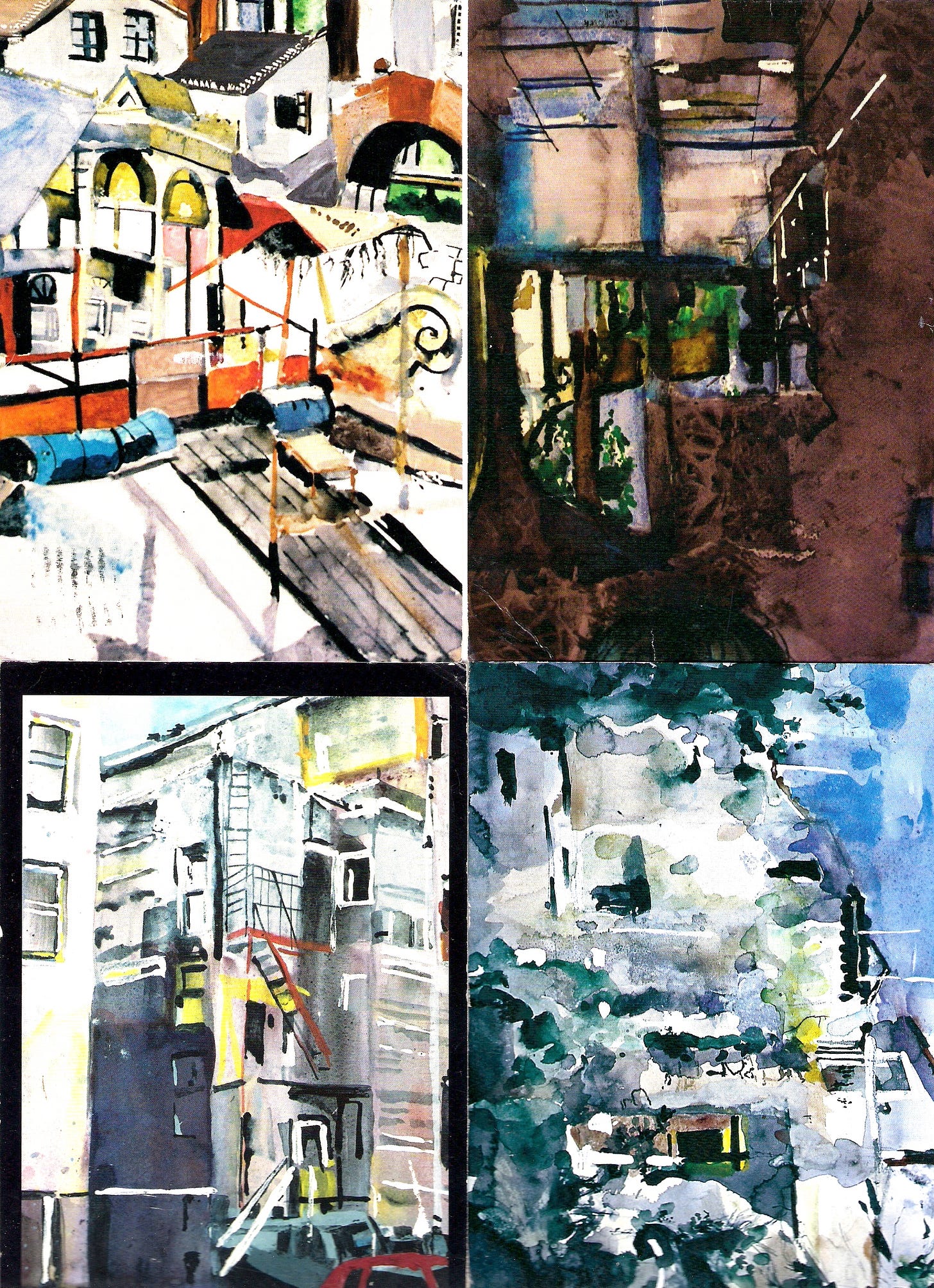
The Price of Life, In Praise of Love
If death didn’t exist, the earliest beings would still be here. How bored would they be by now? The price of immortality is that there would be no change. The price of life is that there is. Think about some of the vibrant artistry, technology, cultures, languages, music, and stories that were left behind by those who went before and continue to be enjoyed today. We wouldn’t have any of those cultural artifacts and our lives would be much less enriched and bereft of history and variety if we didn’t all get a turn at life.
The price we pay for love is physical loss, but the cost of never loving is emotional destitution. Love is a universal need and life is universally cyclical. Emotional cycles ebb and flow like ocean tides or the phases of the moon. Similarly, cycles of love, once generated, will inevitably gather pauses. These relationship intermissions might happen between lives or in time spent away from one another before reuniting in this same lifetime. So how do we cope in the meantime? The following saying sometimes comforts me when I’m grieving:
“The life they left behind, they gave to you” —Author Unknown
Every ancestor, teacher, and all the souls who ever touched your life gave you something that you still carry in your consciousness, your heart, or both. Remembering the many ways they’re here with us can be challenging when mourning becomes so consuming that it overshadows gratitude. However, if grief leads someone to give up on living, two lives have ended instead of one. When grief causes us to withdraw from those who are still here it essentially makes us dead to them and gives them someone to miss even as we’re missing someone else. Despair can cause two people to grieve instead of one. Additionally, not connecting now may create more moments to grieve later. It’s like the three characters in Jean-Paul Sartre’s play No Exit who withstand the torture of a seemingly never-ending circle of unreciprocated and thus impossible love. Perhaps our minds are in the afterlife with those who went before us, and that’s okay and absolutely natural. Mourning is important. But if your melancholy leads to depression that results in isolation to the point that it feels unbearable, a good grief group can help (not to be mistaken with a “good grief” group, a.k.a. Charlie Brown Fan Club…although cartoons can be healing too!)
How Loved Ones Live On Through You and With You
I think of this shock/ grief/ withdrawal/ reemergence into society cycle in another way: if I cease to engage in life because of death, I deny the ones who passed away from living through me, for all they taught me. What they left behind in the words they said, their actions that shaped me, and the lessons they taught me, is them living on when I share their stories or abilities with someone else. If I want to honour the lives of those who lived before me and who loved me, I can give them life again by paying forward all they gave me. As a bonus, I connect with them again every time I use or teach the tools they taught me. If you have seen the television series Vikings, there is an example of this immortality phenomenon in the later development of Judith (a character possibly loosely constructed from Judith of Flanders, stepmother and sister-in-law to Alfred The Great and wife of Aethelwulf ) and the fictitious conflicted Christian monk-turned-Viking Athelstan.
SPOILER ALERT
Following the loss of Athelstan, the character Judith is overcome with grief and fights for access to a tutor/monk and materials that will allow her to carry on painting the illuminated manuscripts that were part of Athelstan’s work. Despite her significant heartache, the availability of an activity that he loved reconnected her to him, both artistically and spiritually. Carrying on with his work brought him to life for her, and in doing something he loved she found something they could share again. Additionally, she learned to love that skill for herself, even as she kept alive the love she had for him.
In that sense, teachers have immortality because their lessons can carry on for generations, centuries, or millennia. Parents are also teachers. In a way, we are all teachers because we share our times here with others who witness and learn from our experiences and interactions. What we bring into the world continues to live in the consciousness of many unknown generations. Who knows how much of our wisdom has been passed on to us from the earliest people? These are the ones who had to move on but made space for us, and who live on through us nonetheless.
END OF SPOILER ALERT
If you believe in life after death, you spend more time on the Other Side than in one lifespan. Yet most of the time our memories begin with this lifetime. However, let’s imagine for a moment that you are a spirit on the Other Side, and/or in another dimension. You (as another soul) have been given an opportunity to inhabit your body, but you wouldn’t remember what came before. That spirit would embody your anatomy, but without any grief, devoid of regret, and freed from every painful memory. If you came to life as you are right now, having previously been a spirit without a body, how electrifying would it feel just to be able to navigate space? How excited would you be to suddenly be you, and to be able to do the simplest things like see through your eyes, hear through your ears, taste a bite of food, or boil a pot of tea? How much more incredible would it be to have the opportunity to talk to people, let alone see or hear their responses to what you say? Every experience would be a first. Can you live your life that way for just a day, or even starting with this one minute?
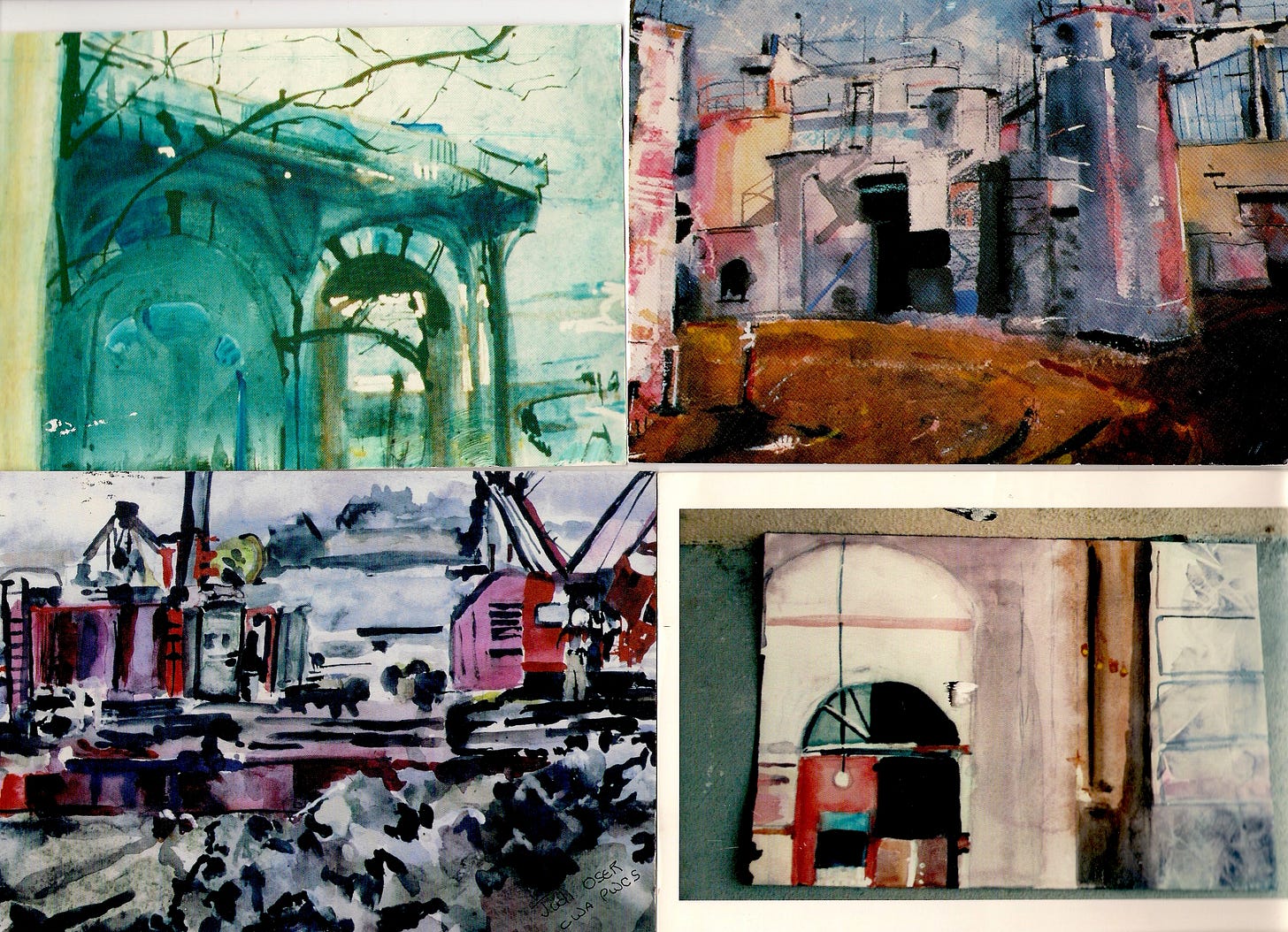
This exercise in imagining a new beginning, as if I just came to life as a spirit temporarily animating this body, helps to relieve me of grief. New perspectives make old relationships feel like another lifetime from centuries ago. It’s as if I knew them from a past life in a previous body. Emotional distance doesn’t diminish the love I have for them, but it does help me to live more fully which simultaneously honours the lives of both of us. It takes energy to cope with the emotional impact and discomfort that accompanies loss, and grief can be paralysing, but just because someone is on a road to a different kind of existence doesn’t mean you have to cease to move forward on this one. I think of loss as a fork in the road that diverges into two or more paths. Your loved ones take another path but you are directed to continue on this one. You know you are being directed simply because you are here. That road exists for you. Eventually, our paths converge again.
“All the World’s a Stage”
Think of life as a theatrical production. If we were all on stage at once we wouldn’t have enough space to move. There wouldn’t be sufficient distance between actors to be able to see and find the ones we’re meant to meet. The offstage area (incidentally referred to as “the wings”) is like the Other Side. You’re not immersed in the action because your body isn’t technically onstage or seen by the audience but you are aware of what’s happening. You might sometimes make the curtains move or implement special effects that bring the magic of theatre to life, and of life to theatre. Similarly, sometimes we as souls have to go offstage to make room for others so they can play their part. Some of your loved ones are only there for the first act. Others show up during the final act. Some will stay for most of the story. It was my paternal Pop-Pop Mayer who taught me about this analogy. When I was about three years old, we returned to my grandparents’ apartment after sitting shiva for my great-aunt. It was my first experience with death and I had questions. The way my Leo grandfather explained the end of life to me (as he often would teach me life lessons by acting out dramatic monologues or singing and dancing to comical songs) was by performing a monologue from Macbeth. “Out, out, brief candle…” he began, and continued this moving, memorised performance for me and my Mom-Mom.
Macbeth. ...Tomorrow, and tomorrow, and tomorrow, Creeps in this petty pace from day to day, To the last syllable of recorded time; And all our yesterdays have lighted fools The way to dusty death. Out, out, brief candle! Life's but a walking shadow, a poor player, That struts and frets his hour upon the stage, And then is heard no more. It is a tale Told by an idiot, full of sound and fury, Signifying nothing... (Shakespeare Macbeth 5.5. 19-28).
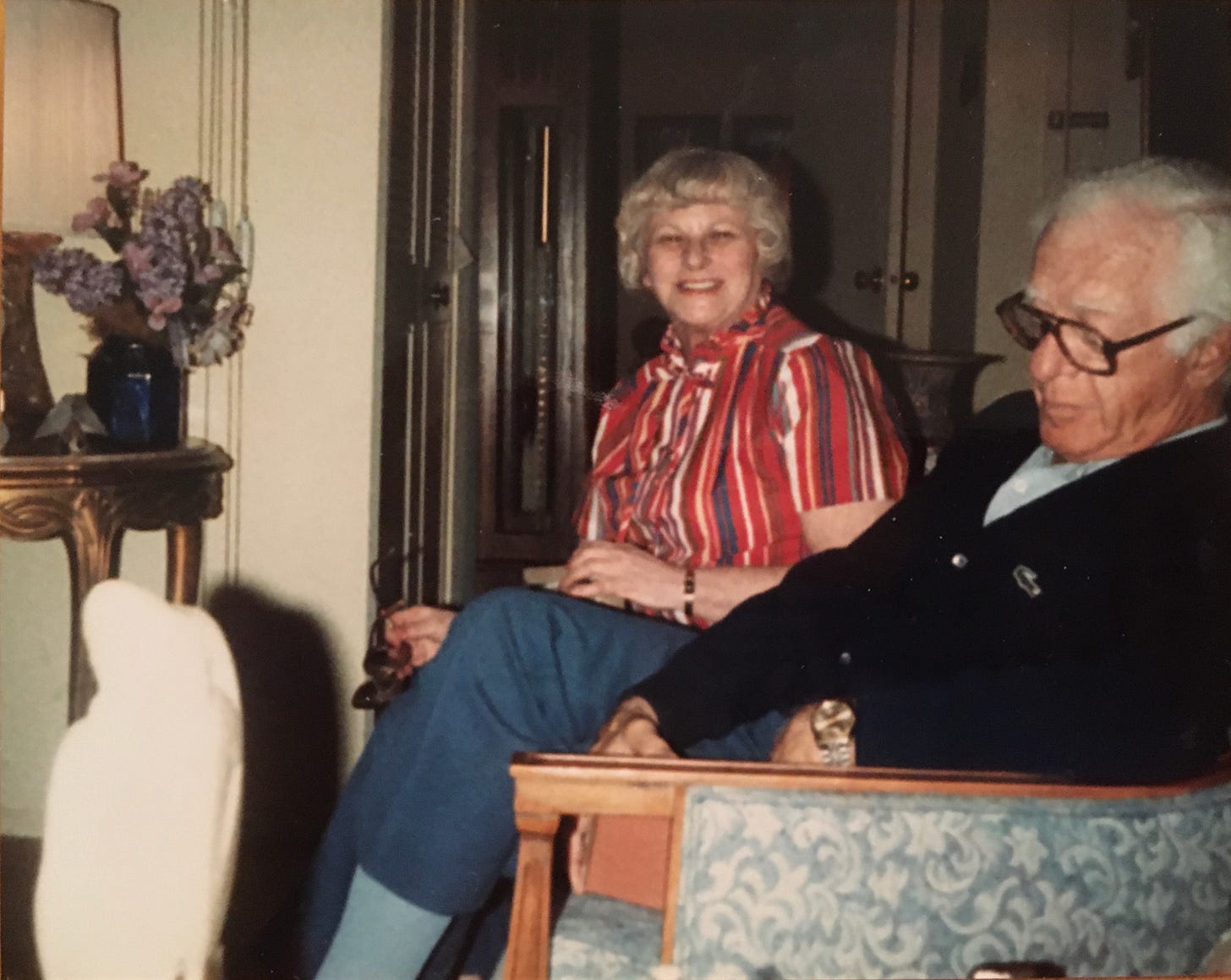
Following the performance, he explained that we are all like candles and when we are alive a flame is lit and then he paused and struggled to say the next part. With sadness in his eyes, he said that all candles have to burn down in time, and did I understand what he was saying? He added that we can’t all be candles at once because there wouldn’t be enough room on the stage for everyone to play their part. I could see tears in his eyes when I asked if he and my Mom-Mom could play something other than a candle because then they wouldn’t have to burn out. While I was limited in my understanding, I could see from his long pause and response that he wished he could change this one way of the world but what I wanted wasn’t possible. That’s when he switched to a comedy monologue and portrayed the lord Jacques from As You Like It:
Jacques. All the world’s a stage, And all the men and women merely players; They have their exits and their entrances; And one man in his time plays many parts, His acts being seven ages... (Shakespeare As You Like It 2.7. 139-143).
His answer to my question in the form of an excerpt from As You Like It was to gain wisdom from but not hold onto the tragedy of Macbeth, because there is still a comedy and playfulness in life that’s meant to be enjoyed and doesn’t end when someone dies.
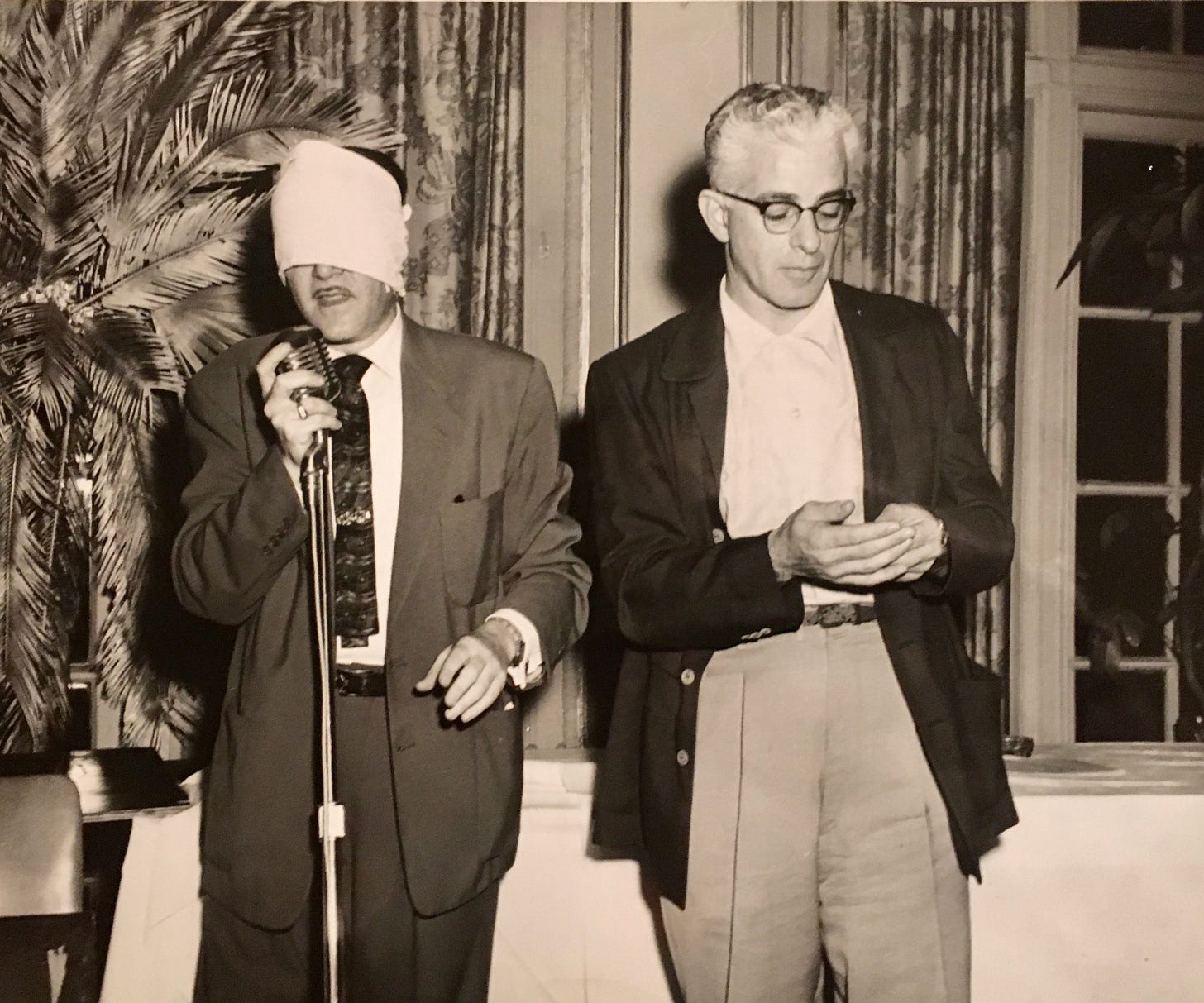
In 2021, months after my dad passed on, I was in the waiting room of a local hospital. A friendly couple in their nineties sat near me and the woman told me excitedly about her obsession with watching shows about off-grid living on YouTube. She seemed so youthful and was open to talking about issues that concern younger people today, such as the dangers of the climate crisis. She mentioned that she met and married her husband when they were in their late eighties. They clearly were very happy to be in one another’s company. She informed me that he was sick and blind. I could not tell if he was able to speak as he didn’t say anything for the several hours we were there but he did respond to the conversation with animated expressions. She did most of the talking and he did a lot of the laughing. She asked what I studied and I mentioned theatre.
When it was time for me to go home I said goodbye to them. Suddenly the man urgently mumbled something to his wife that I couldn’t hear and she said, “He has something he wants to say to you”. By the look on his (albeit masked) face, it seemed like he had an important message to impart to me. He pushed his wheelchair towards me and in a clear, powerful, dramatic voice began: “Out, out, brief candle. Life is but a walking shadow that struts and frets its hour upon the stage, and then is heard no more…”. I sat down, astounded, and listened with tears that fell on my cheeks as he recited the rest of that same monologue my Pop-Pop shared with me to help me comprehend and recover from my first encounter with death when I was three years old. It was so soon after my dad, his son, passed on that I couldn't help but feel that my grandfather was connecting to me through this older man who rarely spoke but somehow mustered up a monologue from Macbeth, and perhaps from beyond, to comfort me once again in a time of loss. As if that wasn’t incredible enough, the man had more to say: “And because you like theatre, here’s another one for you”. He continued, “All the world’s a stage, And all the men and women merely players…”. It was almost too much to take in. How could it be that he was performing both of the monologues my grandfather recited to me decades ago, and in the same order? They grew up in different countries so I don’t think they had the same curriculum.
I’m sure that my mention of theatre inspired this rendition, but of all the shows in the history of the world, and of all the plays in Shakespeare’s canon, why did he choose these particular monologues from those two plays? Especially the one about death from Macbeth in a hospital during a pandemic (or maybe because of? MORBID BUT I LIKE THE BOLD CHOICE). Overall, the specificity of this incident seems too improbable to be a coincidence. Also, considering that this was the same hospital where I had an eight-day near-death experience following a severely burst appendix which connected me with my dad’s ancestors from thousands of years ago just days before he died, it felt to me like my Pop-Pop and those who came before him somehow still occupied this same space. Even now, as I write about my grandparents, I can feel them coming to life again as if they’re in this room. I think that’s because you’re here with me, reading these stories about them.
The Next Part
Incidentally, remember the professor from earlier in this article? The last thing he said to me before he passed away was about Shakespeare. I was in his acting class during my second year of university and he had a message for me as we walked through the hallway and back to the black box studio at CSUN where our classes were being held: “I think of you as a sort of Shakespeare. Not so much an actor, but more of an actor-writer”. I think this was his polite way of saying to stay out of acting and stick to the writing!
As I’ve mentioned before, and back to the topic of theatrical analogies and the afterlife, the death process can be likened to removing a costume. Your role has ended and the show is over, but it’s just one of many productions. Similarly, when someone we love moves on but we’re still here in human form, it changes us. We might be basically playing the same role but it can feel like a different version of who we were with them. We can also play many parts in one lifetime. The loss of someone close can transform the roles we’ve played so far as mother or daughter, partner or friend, student or teacher, father or son, and so on. Following the death of a loved one, it’s possible to embark on or be cast in another role altogether.
The following concept isn’t my own, it’s something I heard on a TikTok video (sorry, I can’t recall the creator!) If someone offered you a million dollars, you would probably feel lucky. What if you were told that you had just won ten million dollars? How would that feel? But what if the person who informed you of this winning mentioned that if you accept the ten million, you wouldn’t wake up tomorrow? You probably wouldn’t take the ten million, or even a billion, in exchange for another day of life. You certainly couldn’t spend much or enjoy it all before tomorrow. Think about that. Each day has infinite value. Every moment we get to be here is worth more than ten million dollars, more than a billion dollars, and more than any amount of currency that exists on this planet. Ultimately, part of the irony of physical life is that nothing material outside of existing will carry more value than existing materially. We truly win the lottery when we come to life. It was highly statistically improbable that any of us would be born but look at how many times this miracle has happened. Every one of you is a meaningful miracle beyond measure. There is no treasure greater than getting a chance to be here, as all other gifts can only transpire from that starting point of existence. Even a second is something. And this second. And this one. The fact that we inhabit bodies moving in space and animating at will with the assistance of a miraculously acquired accompanying consciousness will never not be wild to me. No matter the circumstances in which you may find yourself, it’s astonishing to awaken to the realisation that we somehow came to life at all.
Finally, when you have lost more than one loved one, as so many of you have since the start of this pandemic, it can feel like a whole other life. If I had been reincarnated into another time and place (and many of us already are in a different time and place than where we were born despite being in the same form), wouldn’t I want to enjoy the next adventures, even if that means meeting new people? Shouldn’t I at least be curious about what’s over the hill (pun intended!) on that upcoming, as yet unseen part of the path I’ve been guided to traverse? Why can’t we start over as if we suddenly transmigrated into a new life following the loss of someone dear but far? What would it feel like to be reincarnated again and again at will, only in this same body? According to biologist Dr. Jonas Frisen, our cells die and are replaced every seven to ten years. In a very literal sense, we are not the same people we were a decade ago, and even then we were physiologically different from the decade before. Moreover, our consciousness can change in the time span of a day, an hour, or even in an instant during a moment of revelation. A rebirth of consciousness can engender a new perspective, no matter how many lives you’ve had to leave behind. Based on my limited experience with death, all it takes to be “reborn” after someone is gone is the willingness to carry their love with you even as you carry on.
The sequel to this post will be published under the title: “Grief and the Afterlife II: Coming to You Live from the Other Side”.
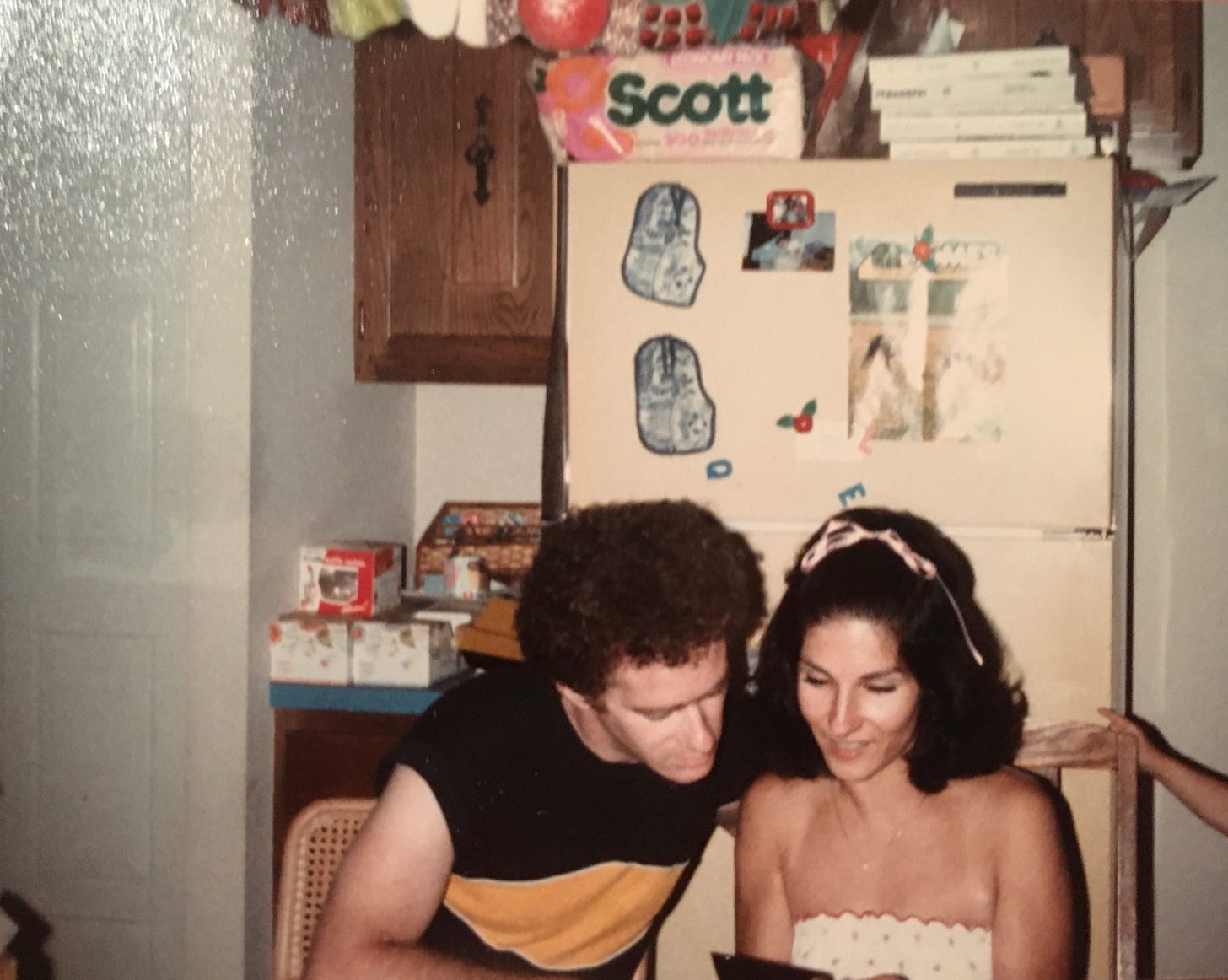
Works Cited
Shakespeare, William. As You Like It. Edited by Cynthia Marshall. New York: Cambridge University Press, 2004.
———. Macbeth. Edited by Burton Raffel. New Haven: Yale University Press, 2005.
Time Travel Tarot: Posts from the Future
“Music as Meditation: Merging Musicality with Spirituality”
“News from the Future Q&A: July 2022 Predictions”
“Altered States in Audio: Music as Meditation”
“This Week in Tarot Q&A: 20-26 June 2022”
Hypnotherapy and Psychic Readings
For hypnotherapy services, past life regressions, psychic tarot readings, medium readings, and/or dream therapy, please book an appointment at https://www.kyraoser.com/book-an-appointment/
*Psychic readings are for entertainment only. Please consult with your physician regarding all health concerns. Please consult with your financial advisor regarding all financial decisions.

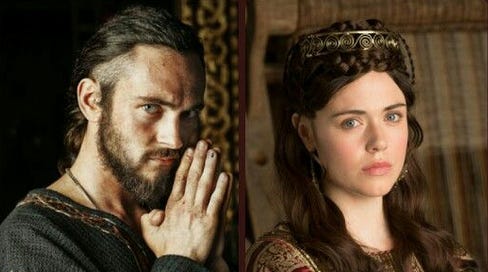



Literally watched Miss Marple quote the same Macbeth speech last night, Kyra. I am sorry you are going through such a loss. The paintings are brilliant, as is your writing.
I very much enjoyed reading about your connections with the other side and am looking forward to part two. My mom died last Halloween night and after a very strained relationship she comes through wanting good things for me but still can’t accept the fact that marriage will never be in the cards again! Dad got in touch recently by showing me a palm cross like the ones he made for me as a child and giving me a three word message. ( He talks in two or three word riddles.) I called for my aunt once and heard her say, “ Tell her the maid goes home at six.” Believe me ,I knew it was her, and she knows what a kick I got out of it.
Not quite Shakespeare but still special! And I believe it was an aunt I never met who died in her teens who told me one morning I had cancer. I went to my doctor and after insisting on a appt. to see her, found out that indeed I did, a fast moving group of cells that would have been in my blood system by the time of my next scheduled appt.
The grieving of a difficult relationship with someone you love can at times be harder than grieving a loving relationship. For me, anyway, it seems so. I prayed very hard for my mom to make it over there and not be a stuck spirit as I’ve been told can happen. I’m glad she made it to the other side.
Thank you for this forum.